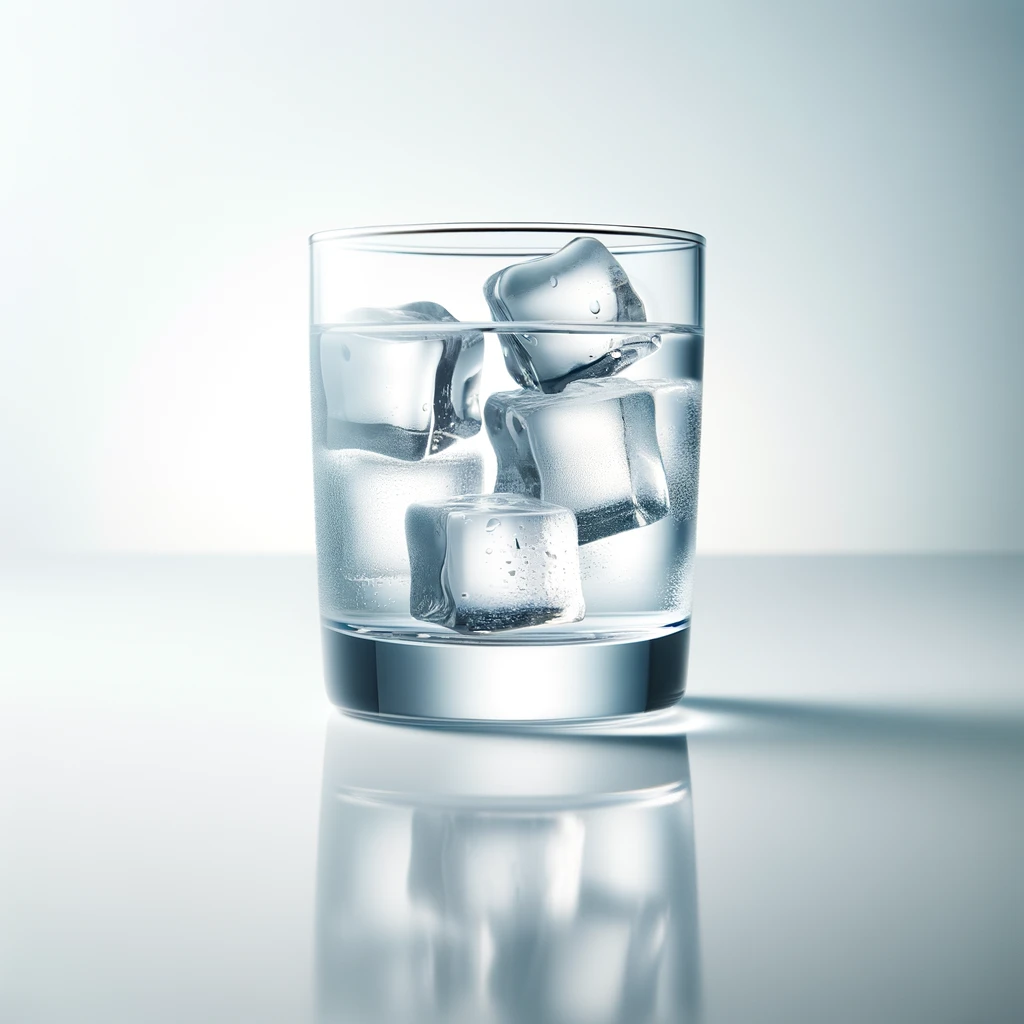Water

Water, the essence of life, is a transparent, tasteless, and odorless liquid that covers about 71% of the Earth's surface. Its neutral flavor allows other ingredients to shine while enhancing the overall texture and consistency of dishes.
It serves as the primary medium for boiling, steaming, and hydration. Its neutral flavor allows other ingredients to shine while enhancing the overall texture and consistency of dishes.
Nutritional Highlights:
Water is calorie-free and indispensable for life. It supports essential body functions such as hydration, digestion, temperature regulation, and nutrient transport, making it the optimal beverage for maintaining general health.Water Preferences:
Keeping your water clean and pure is important for both your health and your cooking. There are several ways to make sure the water from your tap is good to use.Filtration Systems - Many people use water filters to clean their tap water. These can be simple jug filters that you fill and place in your fridge, or more complex systems that fit under your sink or throughout your entire home. These systems help remove impurities and can improve the taste and safety of your water.
Distilled Water - For cooking, some prefer using distilled water, especially when preparing delicate dishes like clear soups or broths. Distilled water is free from minerals and impurities, ensuring that it doesn't alter the taste of your food.
Spring Water - Another option for cooking is spring water, which is often praised for its natural purity and balance of minerals. It can enhance the flavor of the food, adding a slight sweetness that is often missing in tap water due to chlorination and other treatments.
In a Pinch Substitutions:
Keeping your water clean and pure is important for both your health and your cooking. There are several ways to make sure the water from your tap is good to use.Broth or Stock - Using chicken, beef, or vegetable broth instead of water can significantly enhance the flavor of soups, stews, and grains like rice or quinoa. Broth adds a savory depth that water alone cannot achieve, making your dishes more flavorful.
Coconut Water - For a hint of sweetness and a tropical flavor, coconut water is a great substitute in dishes like smoothies, light soups, and even in baking. It's particularly good in Asian recipes or seafood dishes.
Milk - Replacing water with milk can add richness and creaminess to your recipes. It works well in baked goods, creamy soups, sauces, and mashed potatoes. Depending on the dish, you can use whole milk for full flavor and texture, or a lighter version like skim milk.
Fruit Juices - Using fruit juices such as apple, orange, or pineapple juice can introduce a sweet or tangy element to your dishes. This substitution is perfect for marinades, dressings, and certain baked goods. The natural sugars in the juice can help caramelize and add color to your dishes during cooking.
Longevity:
Water does not spoil, but it should be stored properly to maintain its purity. Keep bottled or filtered water in a cool, dark place away from strong odors or chemicals to prevent contamination.Tips and Hacks:
Flavor-Infused Ice Cubes - An easy way to add a kick to your beverages without diluting them is to use ice cubes made from leftover broths or juices. Simply pour leftover chicken broth, vegetable stock, or any fruit juice into ice cube trays and freeze them. Use these ice cubes in your drinks to slowly release flavors as they melt. This trick is great for iced teas, cocktails, or even just a glass of water.Herb Ice Cubes - Freeze fresh herbs like rosemary, thyme, or mint in ice cube trays filled with water. These can be tossed into your cooking pot when making soups or stews, melting into the dish and infusing it with fresh herbal notes.
Reusing Cooking Water - The water left after boiling pasta, potatoes, or steaming vegetables is rich in nutrients and flavors. Instead of pouring this water down the drain, let it cool and use it to water your houseplants or garden. Plants benefit from the nutrients released into the water during cooking.
Soup and Sauce Base - Additionally, you can save this cooking water to use as a base for making flavorful soups or stews. It's already warm and can help dissolve bouillon cubes or mix with other soup ingredients more effectively, adding an extra layer of flavor that you would miss with plain water.
Savvy Savings - Instead of buying bottled water, consider investing in a good water filter for your home. This could be a jug filter, faucet attachment, or a more extensive filtering system. Not only does this ensure you have clean, tasty water on tap, but it's also much more cost-effective and environmentally friendly than buying bottled water.
In a Nutshell:
Water is perhaps the most essential and versatile ingredient in any kitchen, used in everything from cooking and cleaning to essential hydration. Opt for filtered or bottled water for the best results in your cooking and drinking needs.Quick Picks
Chef's Level
Tips and Hacks
Keep your cauliflower white during cooking by adding a 1/4 cup of milk to the boiling water. This easy hack not only preserves its vibrant color but also subtly enhances its natural flavor, making your cauliflower dishes both visually appealing and delicious.
Tell me more...
Featured Offering
Anise Hyssop Honey Butter
Recipe of: Canada

Filed Under: Herbs
Prep Method: Mix
Base: Anise Hyssop
Made with: 3 Ingredients
Keldons Cookery © 1998 - 2025 All rights Reserved | Secured with SSL
Cook what you eat. Love what you cook!
This is day 361 of 2025